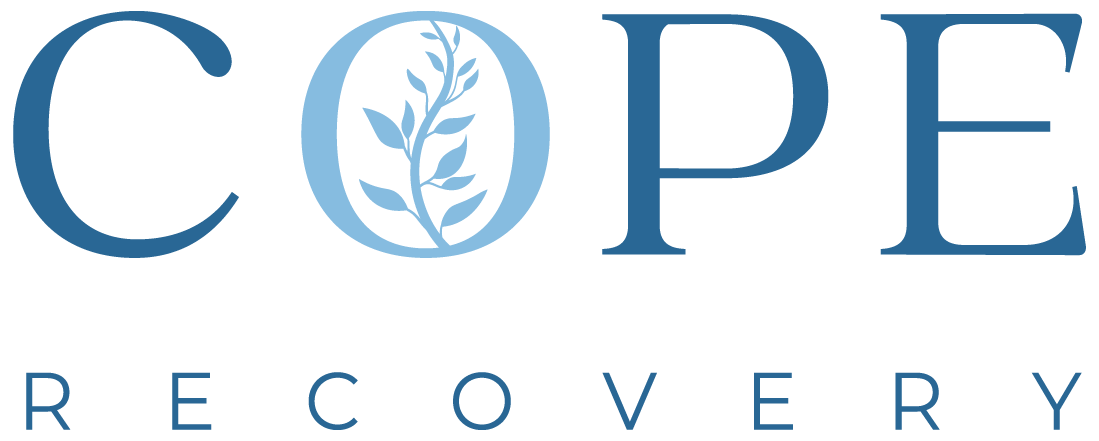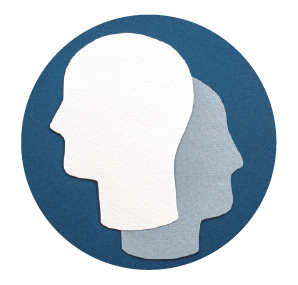Treatment Approaches
“Recovery is not a destination, it's a journey."
Our Treatment Approaches
At Cope Recovery, we provide our clients with the specific types of treatment techniques that best suit your individual needs and issues. Your personal healing journey will consist of various approaches drawn from the strategies listed and explained below.
Individual therapy, also known as one-on-one therapy, is a cornerstone of substance use disorder (SUD) treatment. In these private sessions, a licensed therapist works closely with the individual to explore the root causes of their addiction, identify personal triggers, and develop tailored strategies for overcoming substance use. This personalized approach ensures that the therapy is adapted to the unique needs and experiences of the client, making it an essential component of a comprehensive treatment plan.
During individual therapy, clients have the opportunity to address underlying mental health conditions that may contribute to their substance use, such as depression, anxiety, or trauma. Therapists use evidence-based techniques, including Cognitive Behavioral Therapy (CBT), Motivational Interviewing (MI), and Dialectical Behavior Therapy (DBT), to help clients reframe negative thought patterns and adopt healthier coping mechanisms. These sessions also allow clients to set realistic, achievable goals for their recovery journey, fostering a sense of accomplishment and progress.
The confidentiality and trust established in individual therapy provide a safe space for clients to explore their emotions and challenges without fear of judgment. This therapeutic connection is crucial for building the self-awareness and resilience which empowers clients to make meaningful changes in their lives. Individual therapy often serves as the foundation for other strategies and ensures that the treatment process is holistic and comprehensive.
Offering a supportive and communal environment, Group therapy is a highly effective approach for individuals recovering from substance use disorders. Led by a trained therapist, these sessions bring together individuals facing similar struggles to share their experiences, challenges, and successes. This shared connection fosters a sense of belonging and reduces feelings of isolation, which are common among those battling addiction.
One of the primary benefits of group therapy is the opportunity for peer support. Participants learn from each other’s stories, gaining valuable insights and perspectives that can help them in their own recovery journeys. The group dynamic also promotes accountability, as members encourage one another to stay committed to their goals and celebrate milestones together. This collective effort creates a powerful sense of solidarity that strengthens the recovery process.
Therapists leading group sessions often introduce structured activities, such as role-playing, problem-solving exercises, and discussions on specific topics like relapse prevention or stress management. These activities provide practical tools that participants can apply in their daily lives. Additionally, group therapy helps individuals develop interpersonal skills and rebuild relationships, which are often strained or damaged by substance use.
Peer Support involves connecting individuals in recovery with others who have experienced similar challenges. This approach leverages the shared understanding and empathy of peers to provide encouragement, guidance, and a sense of community. Peer support can take many forms, including one-on-one mentoring, group meetings, or structured programs like peer recovery coaching.
The strength of Peer Support lies in its relatability. Peers offer real-world insights and practical advice based on their own experiences, which can inspire hope and motivate others to stay committed to their recovery goals. The non-judgmental and supportive nature of peer interactions fosters trust and openness, making it easier for individuals to share their struggles and celebrate their progress.
Incorporating Peer Support into a treatment plan enhances its effectiveness by providing an additional layer of accountability and inspiration. It complements clinical therapies and reinforces the idea that recovery is not a solitary journey but a shared experience.
Family therapy focuses on addressing the dynamics within a family that may contribute to or be impacted by substance use. Addiction often affects not just the individual but also their loved ones, creating an atmosphere of stress, miscommunication, and dysfunction. By involving family members in the treatment process, this approach aims to heal relationships, improve communication, and create a supportive home environment conducive to recovery. By helping to create a more supportive home environment, clients become less vulnerable to the cycle of relapse.
In family therapy sessions, a trained therapist works with the family to identify patterns of behavior that may enable substance use, such as codependency or enabling. They also address unresolved conflicts and emotional wounds, fostering open and honest communication. These sessions provide a platform for family members to express their feelings, gain a better understanding of addiction, and learn how to support their loved one’s recovery effectively.
Family therapy is especially valuable for addressing generational patterns and systemic issues that may contribute to addiction. It helps families establish healthy boundaries and develop strategies for navigating challenges together. By strengthening family bonds and promoting a collaborative approach to recovery, this approach enhances the likelihood of long-term success for the individual in treatment.
At Cope Recovery, we have an experienced parent effectiveness training coach who can assist the family members of our clients. This coach specializes in exploring how various parenting approaches and family dynamics factor into the client’s recovery process. Our coach provides the necessary guidance for the development of more effective parenting skills and for the improvement of family relationships. Our training coach meets with both clients and family members to help foster understanding and to strengthen communication through the teaching of important listening and mirroring techniques. The goal of these sessions is to prioritize the teaching of essential skills for emotional resilience, effective communication, and relationship repair.
Psychoeducation involves teaching individuals and their families about the nature of addiction, its impact on the brain and behavior, and the recovery process. This approach empowers clients with knowledge and tools to understand and manage their condition effectively. Topics covered may include the science of addiction, the stages of recovery, coping strategies, and relapse prevention.
The educational aspect of this therapy helps demystify addiction and reduce feelings of shame or blame. Clients gain a clearer understanding of how their substance use affects their health and relationships, which can motivate them to engage more fully in treatment. Families also benefit by learning how to provide meaningful support without enabling harmful behaviors.
Psychoeducation is often integrated into individual and group therapy sessions, as well as family programs. By fostering awareness and insight, it enhances the overall effectiveness of a treatment plan and promotes a collaborative approach to recovery.
Motivational Interviewing (MI) is a client-centered, goal-oriented counseling approach that helps individuals explore and resolve ambivalence about making changes in their lives. This method is particularly effective for those who are hesitant or resistant to addressing their substance use. MI focuses on strengthening a person’s motivation and commitment to change by evoking their own reasons and goals for recovery.
In MI sessions, the therapist uses open-ended questions, reflective listening, and affirmations to create a non-judgmental environment. This approach encourages clients to voice their concerns, identify their values, and articulate how substance use conflicts with their personal goals. By guiding clients to recognize these inconsistencies, MI helps them move toward a greater readiness to change.
One of the key benefits of MI is its emphasis on empowering clients to take ownership of their recovery journey. Rather than imposing solutions, the therapist collaborates with the client to develop a plan that aligns with their unique needs and aspirations. This approach fosters a sense of autonomy and self-efficacy, which are critical for achieving lasting change.
Medication-Assisted Treatment (MAT) combines the use of FDA-approved medications with behavioral therapies to treat substance use disorders. This evidence-based approach is particularly effective for managing opioid and alcohol dependence, as it helps reduce withdrawal symptoms, cravings, and the risk of relapse.
Medications commonly used in MAT include methadone, buprenorphine, and naltrexone for opioid use disorders, and acamprosate and disulfiram for alcohol dependence. These medications work by normalizing brain chemistry, blocking the euphoric effects of substances, or alleviating withdrawal symptoms, allowing individuals to focus on their recovery without the physical distractions of cravings.
MAT is most effective when combined with counseling and other behavioral therapies. This integrated approach addresses both the physical and psychological aspects of addiction, providing a comprehensive framework for recovery. By improving treatment retention and reducing the risk of relapse, MAT significantly enhances the chances of long-term success.
Cognitive Behavioral Therapy (CBT) is a widely used, evidence-based approach that focuses on identifying and changing negative thought patterns and behaviors associated with substance use. The core principle of CBT is that thoughts, feelings, and behaviors are interconnected, and by altering one of these elements, individuals can achieve positive changes in the others.
During CBT sessions, clients work with a therapist to identify triggers for substance use, such as stress, negative self-perception, or interpersonal conflicts. They then learn practical techniques to manage these triggers, such as cognitive restructuring (challenging and changing negative thought patterns), relaxation techniques, and problem-solving skills. Over time, these strategies help clients develop healthier coping mechanisms and reduce the risk of relapse.
CBT is particularly effective for addressing co-occurring mental health conditions like anxiety and depression, which often contribute to substance use. Its structured, goal-oriented nature makes it a versatile tool that can be tailored to the individual’s specific needs. By empowering clients to take control of their thoughts and behaviors, CBT plays a critical role in promoting sustainable recovery and overall mental well-being.
Dialectical Behavior Therapy (DBT) is a specialized form of therapy designed to help individuals manage intense emotions and build healthier interpersonal relationships. Originally developed for individuals with borderline personality disorder, DBT has since been adapted to treat substance use disorders, particularly those involving co-occurring mental health issues.
DBT focuses on four key skill areas: mindfulness, distress tolerance, emotional regulation, and interpersonal effectiveness. Mindfulness helps clients stay present and aware, reducing impulsive behaviors linked to substance use. Distress tolerance teaches techniques to cope with painful emotions without resorting to harmful behaviors. Emotional regulation equips clients with tools to manage intense feelings, while interpersonal effectiveness focuses on improving communication and relationship skills.
DBT is particularly beneficial for individuals who struggle with self-destructive behaviors or have difficulty managing stress. The therapy combines individual sessions with group skills training, providing a comprehensive approach to addressing the emotional and behavioral challenges associated with addiction. By fostering resilience and self-acceptance, DBT helps clients build a stable foundation for recovery.
EMDR is a specialized therapy that helps individuals process and resolve traumatic memories. It is particularly effective for those whose substance use is linked to unresolved trauma. The therapy uses bilateral stimulation, such as guided eye movements or tapping, to help the brain reprocess distressing memories in a less emotionally charged way.
During EMDR sessions, clients focus on a specific traumatic memory while engaging in bilateral stimulation. This process allows the brain to reframe the memory and integrate it into a more adaptive perspective. Over time, the emotional impact of the memory decreases, reducing triggers and promoting emotional healing.
EMDR is an evidence-based approach that has shown significant success in treating post-traumatic stress disorder (PTSD) and other trauma-related conditions. By addressing the root causes of distress, it helps individuals break free from the cycle of substance use and build a healthier future.
Trauma-Informed Care recognizes the pervasive impact of trauma on individuals with substance use disorders and integrates this understanding into all aspects of treatment. This approach prioritizes safety, trust, and empowerment, creating an environment where clients feel supported and understood.
In trauma-informed settings, therapists are trained to recognize the signs of trauma and avoid re-traumatization. Treatment plans are tailored to address the client’s specific needs, often incorporating modalities like EMDR (Eye Movement Desensitization and Reprocessing), somatic experiencing, or trauma-focused CBT. These techniques help clients process traumatic experiences and build resilience.
Trauma-Informed Care emphasizes collaboration and respect, empowering clients to take an active role in their recovery. By addressing the underlying trauma that often drives substance use, this approach lays the groundwork for sustainable healing and long-term sobriety.
12-Step Facilitation is a structured approach that introduces individuals to the principles and practices of 12-Step programs like Alcoholics Anonymous (AA) or Narcotics Anonymous (NA). These programs provide a supportive community and a framework for personal accountability, spiritual growth, and ongoing recovery.
During 12-Step Facilitation sessions, therapists guide clients through the foundational steps of the program, helping them understand concepts such as admitting powerlessness over addiction, making amends, and seeking support from a higher power or community. Clients are encouraged to attend meetings, connect with sponsors, and actively participate in the recovery process.
The communal aspect of 12-Step programs is a key component of their success. By fostering connections with others who have experienced similar struggles, individuals gain a sense of belonging and mutual support. This network plays a crucial role in maintaining motivation and preventing relapse thereby making 12-Step Facilitation a valuable addition to a comprehensive treatment plan.
Non-12-Step approaches offer alternatives to traditional 12-Step programs. They focus on evidence-based practices and self-empowerment. These methods are ideal for individuals who prefer a secular or individualized approach to recovery. Programs like SMART Recovery, for example, use cognitive-behavioral techniques to help participants develop self-management and coping skills.
Non-12-Step approaches emphasize personal responsibility and autonomy by encouraging individuals to take control of their recovery journey. These programs often incorporate elements of mindfulness, goal-setting, and problem-solving, providing practical tools for navigating challenges and maintaining sobriety.
By offering flexible and personalized options, Non-12-Step approaches make recovery accessible to a broader range of individuals. These methods complement traditional treatment approaches and can be integrated into a comprehensive recovery plan to meet the unique needs of each client.
Nutritional and Physical Fitness Counseling addresses the physical health aspects of recovery. Substance use often depletes the body of essential nutrients and leads to unhealthy lifestyle habits. This counseling helps individuals restore their physical well-being by promoting a balanced diet and regular exercise.
A registered dietitian or fitness expert works with clients to create personalized plans that support their recovery goals. Nutritional counseling focuses on replenishing vital nutrients, managing cravings, and improving overall health, while fitness counseling encourages physical activity to boost mood, reduce stress, and enhance energy levels.
Incorporating this strategy into a treatment program supports holistic recovery. By addressing the physical, emotional, and mental aspects of well-being, Nutritional and Physical Fitness Counseling helps clients build a strong foundation for a healthier, substance-free life.
Experiential Therapies use hands-on activities and experiences to help individuals process emotions and build resilience. Examples include adventure therapy, equine-assisted therapy, and wilderness therapy. These approaches engage clients in real-world scenarios that promote personal growth and self-discovery.
Adventure therapy might involve activities like rock climbing or kayaking, which challenge individuals to step outside their comfort zones and develop trust and teamwork. Equine therapy involves working with horses to improve communication, self-awareness, and emotional regulation. Wilderness therapy uses nature as a therapeutic setting, encouraging mindfulness and connection.
Experiential Therapies are particularly effective for individuals who find traditional talk therapy challenging. They offer alternative ways to process feelings and build confidence while fostering a sense of accomplishment and purpose.
Other experiential therapies include but are not limited to: art therapy; cinema therapy; music therapy; pet therapy; drama/theater; gaming; etc.
MBSR combines mindfulness practices intended to reduce stress and enhance emotional regulation. This evidence-based program is designed to help individuals cultivate present-moment awareness and develop healthier responses to stress and cravings.
In MBSR sessions, clients learn techniques for focusing their attention to improve their self-awareness which allows for reduced stress and anxiety, improved sleep quality, enhanced emotional regulation, and reduced physical discomfort.
Holistic therapies approach recovery by addressing the multiple facets of a person’s well-being: physical, emotional, and spiritual. These therapies include practices such as yoga, meditation, acupuncture, etc. These holistic therapies can complement traditional treatment methods by promoting self-awareness, relaxation, and healing.
These activities not only enhance overall well-being but also empower individuals to take an active role in their recovery. Holistic therapies are particularly beneficial for individuals seeking a balanced and integrative approach to treatment. By fostering a sense of inner peace and self-discovery, these approaches support the recovery journey in ways that extend beyond traditional clinical methods. This comprehensive approach helps individuals build a strong foundation for long-term sobriety and personal growth.
Yoga is especially helpful in developing the mindfulness and stress management skills which are crucial for maintaining sobriety. Yoga provides breathing techniques which help people to control the acute stress which detox and triggering events can cause. The physical poses of yoga provide a soothing and empowering routine which can reinforce one’s other recovery tools.These poses also serve to create and bolster a positive relationship with one’s body and repair the disconnect that substance use often causes. Additionally, the meditative aspects of yoga allow one to reinforce short term recovery and to defuse and negotiate any trauma which may be contributing to one’s substance use.
Acupuncture is believed to stimulate the body’s natural healing processes. By targeting specific acupuncture points, this therapy may help regulate neurotransmitters and promote the release of endorphins which can reduce discomfort during the withdrawal process. Acupuncture has also been shown to reduce drug cravings which can enhance the ability to resist relapse.
Mind Body Bridge is a powerful tool for navigating and negotiating any underlying trauma which may be contributing to substance abuse, addiction, and mental health struggles. This treatment directs the practitioner into a state of deep relaxation and then invites the person to welcome and create powerful symbols for recovery. This approach is a powerful tool for helping clients disconnect from the dysfunctional narratives of the past and create empowering narratives which can support and sustain their future recovery.
Sound Bath Therapy uses sound and vibration to promote relaxation and emotional healing. Instruments such as singing bowls, gongs, and chimes create a meditative environment that helps individuals release stress and connect with their inner peace. The calming frequencies used in sound therapy are believed to influence brainwave activity, encouraging deep relaxation and a sense of balance.
This modality is particularly effective for individuals in recovery as it addresses the emotional and physical tension often associated with substance use. It can reduce anxiety, improve sleep, and enhance mindfulness, making it a valuable addition to a holistic treatment plan.
Sound Bath Therapy is typically offered in group or individual sessions and is designed to complement other therapeutic approaches. By fostering a sense of calm and grounding, it helps individuals build resilience and a stronger foundation for sobriety.
Relapse Prevention Therapy focuses on helping individuals identify and manage high-risk situations that could lead to a return to substance use. It equips clients with coping strategies and tools to navigate triggers, whether environmental, emotional, or social. This therapy is based on the principle that relapse is a process, not a single event, and it aims to empower individuals to interrupt this process before it escalates.
Clients work with therapists to develop personalized relapse prevention plans that include recognizing early warning signs, creating healthy routines, and finding alternative ways to cope with stress or cravings. Techniques such as cognitive restructuring and mindfulness are often incorporated to help clients maintain awareness and resilience.
This therapy is vital for sustaining long-term recovery. By proactively addressing potential challenges and providing a robust toolkit for managing them, Relapse Prevention Therapy strengthens an individual’s ability to remain sober and focused on their recovery journey.
Aftercare and Continuing Care provide structured support for individuals transitioning out of formal treatment programs. These services are designed to help clients maintain their sobriety and continue their personal growth while navigating the challenges of everyday life. Common components of aftercare include alumni programs, regular therapy sessions, support groups, and sober living arrangements.
The goal of Aftercare and Continuing Care is to reinforce the skills and strategies learned during treatment. Clients receive ongoing guidance and encouragement to help them cope with triggers, manage stress, and build a fulfilling life in recovery. These programs also provide opportunities for social connection, which can be vital for maintaining long-term sobriety.
By offering a safety net of support, Aftercare and Continuing Care reduce the risk of relapse and empower individuals to sustain the positive changes they have made. This continued involvement in recovery-focused activities fosters a sense of purpose and community, which are essential for lasting success.
Aftercare and Continuing Care
Aftercare and Continuing Care provide structured support for individuals transitioning out of formal treatment programs. These services are designed to help clients maintain their sobriety and continue their personal growth while navigating the challenges of everyday life. Common components of aftercare include alumni programs, regular therapy sessions, support groups, and sober living arrangements.
The goal of Aftercare and Continuing Care is to reinforce the skills and strategies learned during treatment. Clients receive ongoing guidance and encouragement to help them cope with triggers, manage stress, and build a fulfilling life in recovery. These programs also provide opportunities for social connection, which can be vital for maintaining long-term sobriety.
By offering a safety net of support, Aftercare and Continuing Care reduce the risk of relapse and empower individuals to sustain the positive changes they have made. This continued involvement in recovery-focused activities fosters a sense of purpose and community, which are essential for lasting success.
We invite you to call Cope Recovery for a free, confidential consultation to discuss your treatment needs or the needs of a loved one. We are here to help you make an informed decision regarding the treatment program that is the best fit for you.
Our admissions counselors can be reached 24/7 at 818-318-0202 We look forward to being of service.



